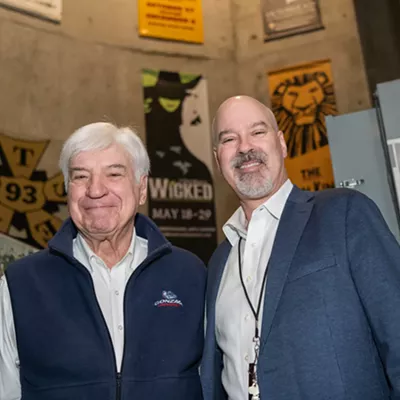America has a longstanding tradition of making as much money as is legally possible. It’s the American Dream. As one ruthless capitalist put it, you should spend the irst third of your life learning as much as you can and spend the next third making all the money you can.
This arrangement — capitalism — has worked pretty well for us. We maintain our way of life through innovation, commerce and individual freedom and responsibility.
But it doesn’t quite work if the system gets out of balance. If too much wealth stays in too few hands, a wise man once worried, America could decay like the failing states of Europe. And that’s not the ramblings of some turn-of-the-century socialist; that’s how one of the richest men in history — Andrew Carnegie — saw it. The advice above is also Carnegie’s, and he had more to add. The last third of your life, he believed, should be spent giving away all that money you just made.
During the Gilded Age, barely any of Carnegie’s contemporaries listened to him. Only a crazy man would turn in their chips after they won; almost all his lush friends kept their winnings, passing vast fortunes down through their families. But Carnegie walked his talk and managed to hand out $4 billion (in today’s dollars) —building libraries, concert halls and universities. He couldn’t quite inish the job, and the Carnegie Foundation continues to give away his money to this day.
Maybe if we think of Carnegie’s century-old theories as “catch-andrelease capitalism,” they’ll resonate better today. And they should resonate — if anything, the chasm between the ultra-rich and the rest of us has gotten even wider since Carnegie’s time.
Billionaire Warren Buffett seems to understand. Just last week he announced his plans to give away almost all of his fortune — and dozens of others joined him via his Giving Pledge program. Ted Turner, Paul Allen, Bill Gates, Michael Bloomberg and many others have set a new example by embracing Carnegie’s crazy idea to give most of their fortunes to important causes. (The pledge letters are inspiring; you can read them at givingpledge.org.)
There is still plenty of greed in the world, but hopefully these pledges mark a watershed moment — an awakening among America’s elite to what the rest of us perhaps know better. To succeed on this planet, we’ll need all the resources we can muster.
Ted S. McGregor Jr. is the Editor and Publisher of The Inlander.
























